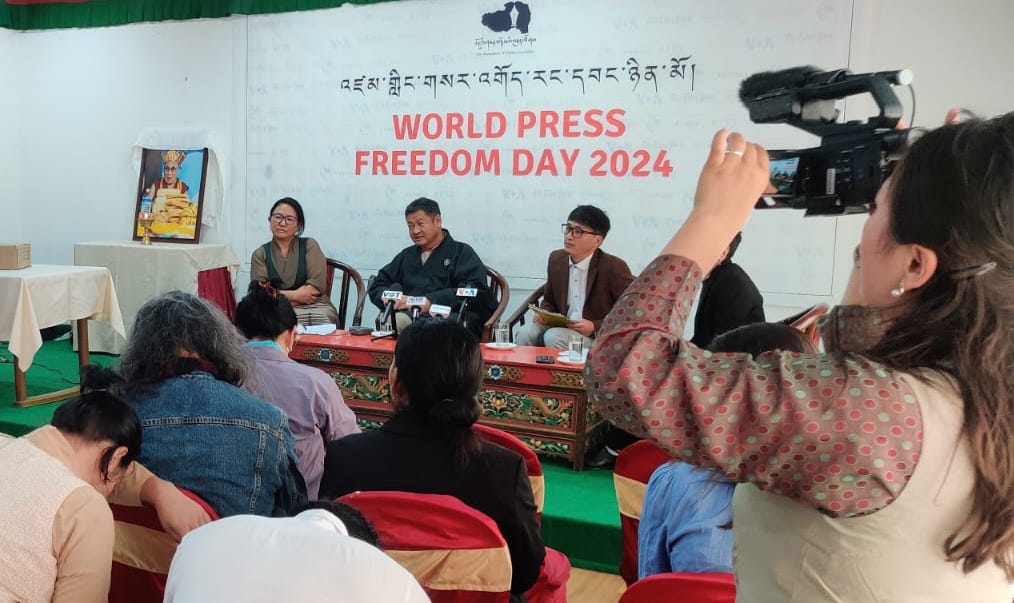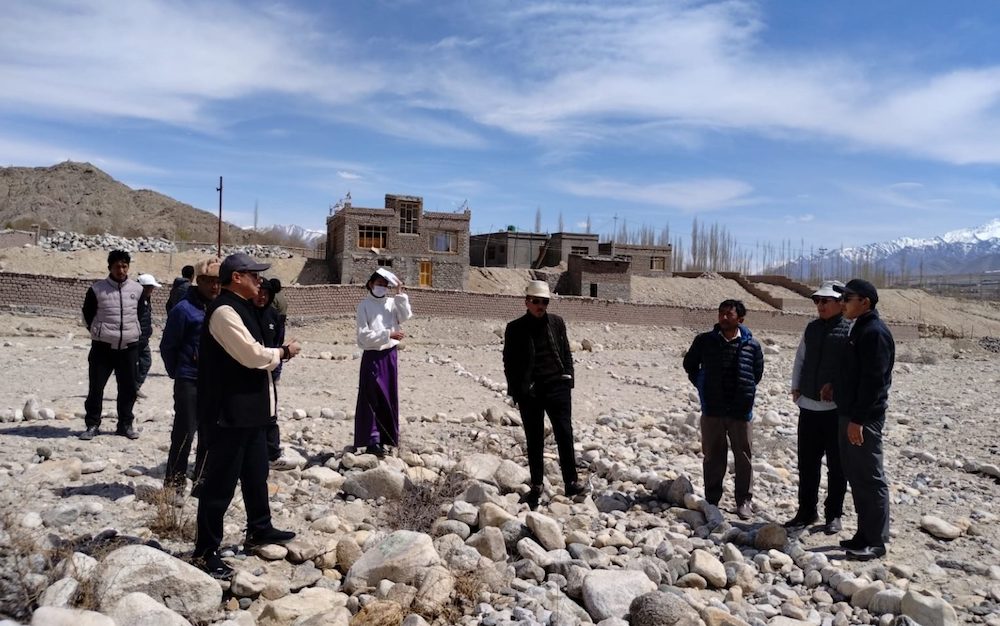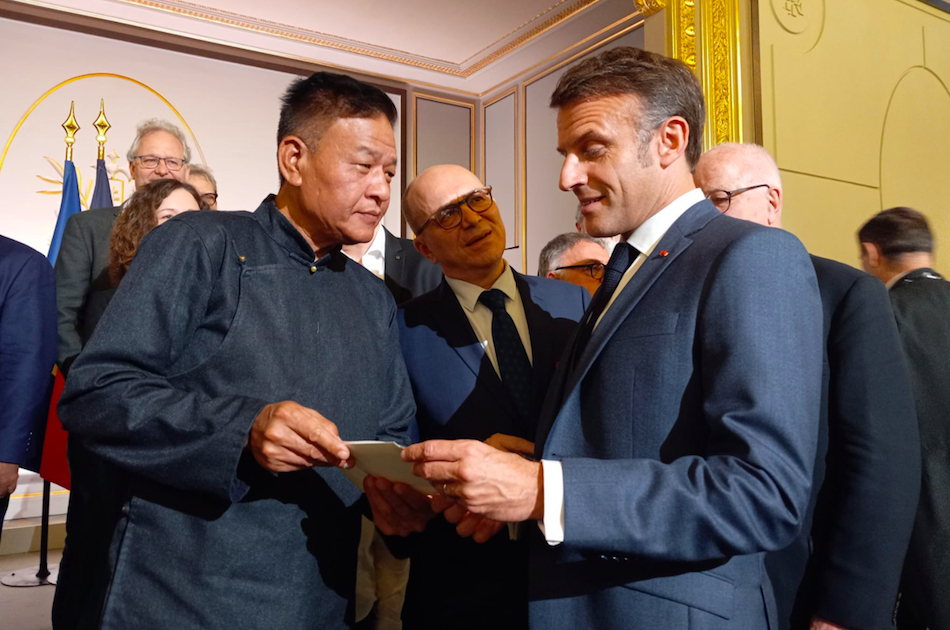By Vivek Thuppilis
In his commentary, (“Urbano’s commentary offensive to Chinese,” The Triangle, Sept. 18, p. 12) Xianmin Zhu made many statements that didn’t exactly tell the whole truth. Zhu took offense to the fact that Leonardo Urbano called the Communist regime in China “tyrannical” and he suggested that the Chinese invasion and brutal occupation of Tibet wasn’t an invasion at all, but a “reoccupation” of the same.
First of all, the Communist regime in China is tyrannical. There can be no doubt of that. General Mao’s “Cultural Revolution,” which jailed and executed many political dissidents, intellectuals and free thinking people, was clearly a tyrannical act. Let us never forget what happened in Tiananamen Square in 1989. Here, the brutal regime in China used tanks and other heavily armored vehicles to brutally massacre its own students who were carrying out a peaceful protest for more democracy in their country. I doubt Zhu would have read much about this incident in his own country, where all the school textbooks and media sources are controlled by this tyrannical regime, which ensures that China’s people, especially its young, never find out about these horrific events.
Zhu also talked about Tibet. The reality in Tibet is quite different from the Chinese Communist Party propaganda which Zhu attempted to feed us. The fact is that Tibet has been an independent country for quite a long time. Tibet, an independent nation for at least the last 3,000 years, was never directly controlled by the imperial dynasties of China. Sometimes the Tibetan Dalai Lama would pay tribute to the Chinese emperor in order to maintain his freedom, but Tibet was a free, independent nation until 1949. Tibet’s independence was even affirmed by the British during their rule of India, who recognized Tibet as “an independent, neutral buffer state between China and British India.” In 1949, when the Communist regime took over in China, it began asserting that Tibet was a part of China and that its people were crying out for “liberation.” By 1950, the Chinese Army had entered and occupied large sections of the Kham province of Tibet and were penetrating the Amdo province in the northeast. However, they avoided clashes with the Tibetan Army because of the international interest it would create. According to http://www.tibet.org, by 1954, 222,000 members of the People’s Liberation Army were stationed in Tibet and famine conditions became rampant as the country’s delicate subsistence agricultural system was stretched beyond its capacity.
By 1956, northeast and eastern areas of Tibet were firmly under the brutal control of the Chinese army. The local people rose up in revolt against the foreign occupiers, and inflicted casualties on the Chinese army. However, the Chinese responded brutally to this dissent. More Chinese troops were recalled to these provinces, and when that wasn’t sufficient to break the spirit of the people living here, the Chinese enacted even more brutal methods. The Chinese Army began bombing and pillaging Buddhist monasteries in eastern Tibet, and arrested nobles and senior monks and publicly tortured and executed them in an attempt to discourage the large scale grassroots resistance they were facing.
By 1958, the Chinese Army had established control of most of Tibet, and a revolt of simmering. The Chinese responded by threatening to bomb Lhasa and the Dalai Lama’s residence. The tensions simmered, and in 1959, along with his most faithful followers, the Dalai Lama fled to India after a four day trek through the mountains. The Chinese responded swiftly, and over the next 20 years, proceeded to brutally destroy Tibetan culture and oppress its people. A fifth of Tibet’s population died as a result of China’s brutal policies, and many more languished in prisons and labor camps. More than 6,000 monasteries, temples and other historic and cultural buildings were destroyed and their contents were pillaged. After oppressing and destroying Tibetan culture, China has now moved on to trying to replace it with its own. Chinese farmers and migrants have flooded Tibet, and in many areas in eastern Tibet, the Chinese outnumber Tibetans two to one, and in some areas, even three to one. The Chinese have also used Tibet to commit acts of aggression against their neighbors.
In 1962, the Chinese Army invaded India from Tibet, and only after much resistance from the Indian Army and much international pressure and outrage did the Chinese finally withdraw. Apparently, the expansion of Chinese territory, both through wars and peaceful methods that Zhu talks about in his commentary is not complete. The Tibetans are an extremely non-violent people, and it is because of this that they were conquered by the Chinese. Today, the situation in Tibet is very tense. The influx of Chinese increases; peaceful demonstrations in Lhasa and elsewhere take place despite the strong and often violent reaction of Chinese security forces, according to http://www.tibet.com. Thousands of Tibetans are imprisoned for their political or religious activities; torture is carried out regularly on detainees; Tibetans are rarely permitted to leave the country and access to Tibet by exiled Tibetans is limited. China has just opened Tibet to tourism, both individual and group, and to wider economic development. The “economic miracle” of China does not apply to Tibet, however, since the only community that is benefiting from economic incentives is the Chinese community. Indeed, the Chinese authorities are so worried that Tibetan political activity might disrupt business and public relations that repression in the major towns — and at the major monasteries — is very tight.
The people of Tibet have continued in their path of non-violence and peace, putting pressure on the Chinese government diplomatically in the hope that their fervent cries for freedom will be heard by the international community. They hope this will cause the Chinese government withdraws its occupation and that they will regain their homeland, much like the Jews got Israel back. In conclusion, I would like to finish with a quote from http://www.tibet.org: “In a world where terrorism gets so much attention, it is important to support those who are willing to brave the path of peace.”
Vivek Thuppilis a sophomore majoring in bioscience and environmental science.









